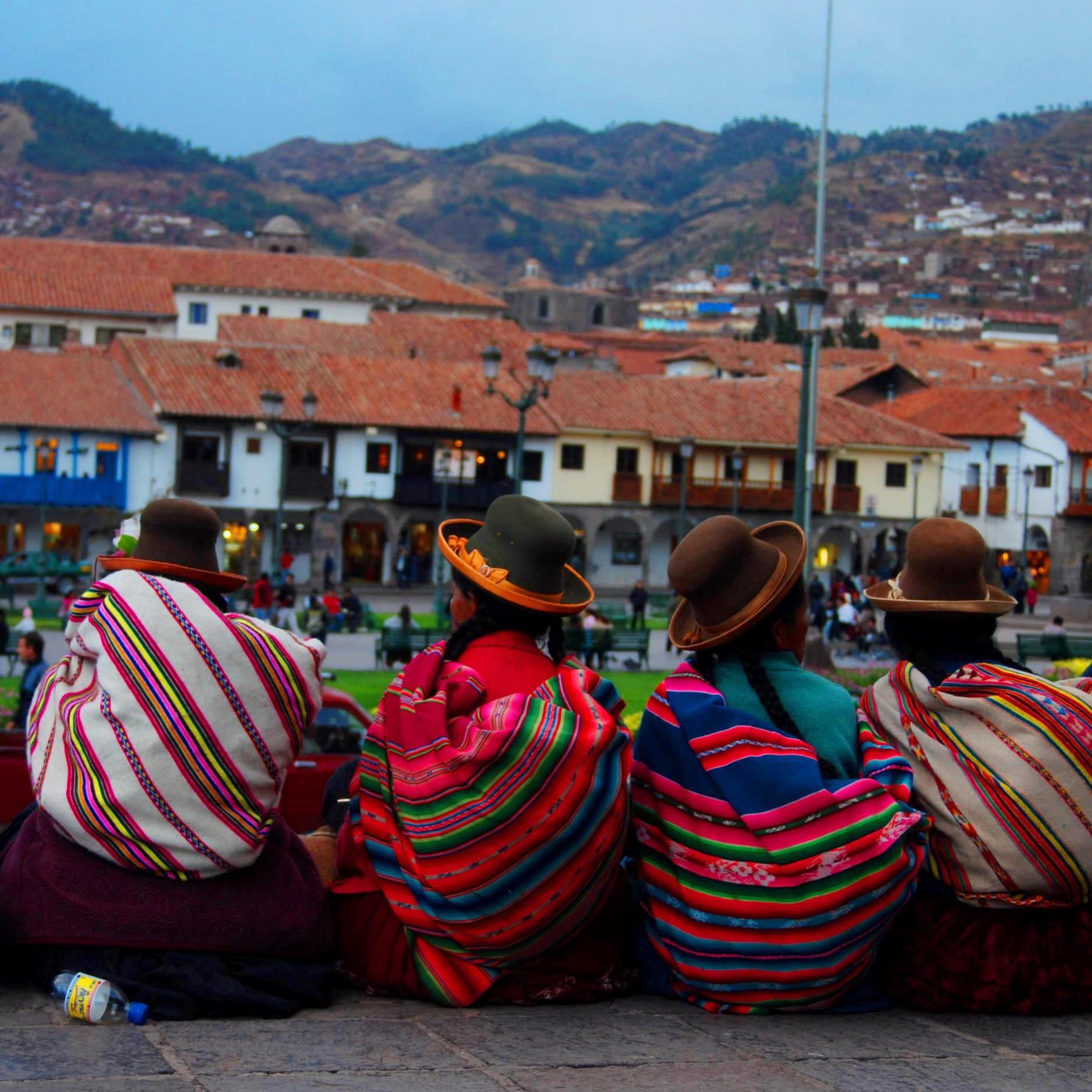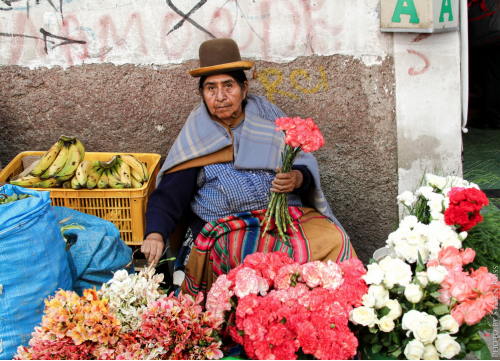
Another story of grace from Gregory Boyle’s litany of grace stories, Tattoos on the Heart. In this one, Boyle describes being a priest in Cochabamba, Bolivia, just after having been ordained. Having had little Spanish education at the time, he is able to get through the Eucharist okay, but not without reading directly from the missal. Boyle recalls being asked to perform Mass for an indigenous community known as the Quechua, who had not seen a priest in over a decade. The Quechua people are a poor mountain community that make a living harvesting flowers, and carrying the flowers in enormous backpacks down the mountain into the city.
Boyle is asked to celebrate the Mass in Spanish, and a local Quechua Indian would translate the Mass in Quechua. Except for one thing: Boyle, in reaching the top of the mountain where the Mass is to be celebrated, has forgotten his Spanish missal. He does not have the words to share the Eucharist to this group of people. He panics and tries to make do with what he can:
We pull into a huge, open-air landing, a field cleared of all crops, and many hundreds of Quechua Indians have gathered and set themselves down around this table, our altar. I hobble and fake my way through the liturgy of the Word, aided by the health workers, who read everything in Quechua. After the gentleman preaches, it is my turn to carry the ball. I’m like someone who’s been in a major car accident. I can’t remember a thing.
I know only that I have a crib sheet with some notes I have made, with stolen scriptural quotations, all the while lifting the bread and wine whenever I run out of things to say. It would be hard to imagine this Mass going worse.
When it is over, I am left spent and humiliated. I am wandering adrift, trying to gather my shattered self back together again, when a female health worker walks an ancient Quechua woman up to me.
“She hasn’t gone to confession in ten years.”
She leaves her with me, and the viejita unloads a decade’s worth of sin in a singsongy and rapid-fire Quechua. I just nod like a menso waiting for a pause that might indicate she’s finished. The woman’s got some pulmones on her and doesn’t seem to need to take a breath. She goes on for about a half hour. Finally she does stop, and I manage to communicate some penance and give her my memorized absolution. She walks away, and I turn to discover that I have been abandoned. The field where we celebrated Mass has been vacated. Inexplicably, even the truck and the health workers are gone. I am alone at the top of this mountain, stuck, not only without a ride, but in stultifying humiliation. I am convinced that a worse priest has never visited this place or walked the earth.
With my backpack snug on my should and spirit deflated, I begin to make the long walk down the mountain and back to town. But before I leave the makeshift soccer field that had been our cathedral, an old Quechua campesino, seemingly out of nowhere, makes his way to me. He appears ancient, but I suspect his body has been weathered by work and the burden of an Indian’s life. As he nears me, I see he is wearing tethered wool pants, with a white buttoned shirt, greatly frayed at the collar. He has a rope for a belt. His suit coat is coarse and worn. He has a fedora, toughened by the years. He is wearing huaraches, and his feet are caked with Bolivian mud. Any place that a human face can have wrinkles and creases, he has them. He is at least a foot shorter than I am, and stands right in front of me and says, “Tatai.”
This is Quechua for Padrecito, a word packed with cariño, affection, and a charming intimacy. He looks up at me, with penetrating, weary eyes and says, “Tatai, gracias por haber venido” (Thanks for coming).
I think of something to say, but nothing comes to me. Which is just as well, because before I can speak, the old campesino reaches into his pockets of his suit coat and retrieves two fistfuls of multicolored rose petals. He’s on the tips of his toes and gestures that I might assist with the inclination of my head. And so he drops the petals over my head, and I’m without words. He digs into his pockets again and manages two more fistfuls of petals. He does this again and again, and the store of red, pink, and yellow rose petals seems infinite. I just stand there and let him do this, staring at my own huaraches, now moistened with my tears, covered with rose petals. Finally, he takes his leave and I’m left there, alone, with only the bright aroma of roses.
For all the many time I would return to Tirani and see the same villagers, over and over, I never saw this old campesino again.

COMMENTS
2 responses to “A Botched Eucharist and a Campesino’s Pocketful of Flowers”
Leave a Reply














What a beautiful, touching story. Thank you, Ethan, for sharing it. Boyle’s book just moved up several places on my reading list.